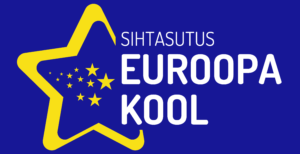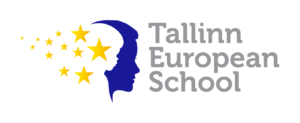Secondary
The secondary cycle at the Tallinn European School (TES) aims to promote European cultural diversity whilst simultaneously fostering an inclusive and supportive school community. Currently, the Secondary Cycle only consists of one Language Section, namely, the English section.
Pupils normally enter the Secondary Cycle in the calendar year in which they turn 11, following the successful completion of the European School’s primary course or an equivalent course duly certified by an officially recognized school.
The seven years (from S1 to S7) of secondary education are organized in the following way:
- Observation Cycle S1-S3
- Pre-orientation Cycle S4-S5
- Orientation Cycle S6-S7
The curriculum encompasses all general academic subjects from Mathematics and the Sciences to Humanities and Modern Languages. Students with an interest in Art and Music can follow their interests and develop their skills according to our syllabus.
| 08:20 – 10:45 | Lessons 1 – 3 |
| 10:45 – 11:00 | Break |
| 11:00 – 12:35 | Lesson 4- 5 |
12:40 – 13:25 13:30 – 14:15 | Lunch Break A Lunch Break B |
| 14:20 – 16:45 | Lessons 7 – 10 |
Reading lists (2024/2025)
- Reading list for S1L1L1
- Reading list for S2 L1
- Reading list for S3 L1
- Reading list for S2 L2
- Reading list for S3 L2
- Reading list for S5L2
- English Language 2 reading list for S4-S5
- Reading list for S6 S7 L2
WELCOME TO THE SECONDARY CYCLE
For the first three years of the Secondary Cycle, pupils follow a common curriculum, in what is known as the Observation Cycle:
- Most subjects are taught in their L1.
- All pupils will begin to study L3 from S1 onwards. The L3 course is specifically designed for beginners.
- In S2, Latin is offered as an option.
- In S3, all pupils study Human Sciences in their L2.
- In S3, pupils who chose Latin in year 2 continue to study it. For the other pupils, ICT is offered as an option.
See the syllabuses for all the subjects
| Subject / Lessons per week | S1 | S2 | S3 |
| Compulsory Subjects | |||
| Language 1 / L1 | 5 | 5 | 4 |
| Language 2 / L2 | 5 | 4 | 4 |
| Language 3 / L3 | 2 | 3 | 3 |
| Mathematics | 4 | 4 | 4 |
| Integrated Science | 4 | 4 | 4 |
| Human Sciences | 3 | 3 | 3 (in L2) |
| Physical Education (Learn more) | 3 | 3 | 3 |
| Music | 2 | 2 | 2 |
| Art | 2 | 2 | 2 |
| Ethics | 2 | 2 | 2 |
| ICT | 1 | 1 | |
| Optional Subjects | |||
| ICT | 2 | ||
| Latin | 2 | ||
Host Country Language / HCL Estonian History for L1ET | 1
1 | 1
1 | 1
1 |
Pre-orientation cycle 2024-2026
At the end of the Observation Cycle (S1-S3), European Schools’ pupils must choose some subjects for the Pre-Orientation Cycle (S4-S5). Their choices will depend in part on the options they have taken during S3 and will determine the range of subjects that they will be allowed to choose in the Orientation Cycle (S6-S7).
- In S4 and S5 the compulsory course in Integrated Science is subdivided into Physics, Chemistry and Biology.
- Pupils may choose between the elementary (4p) or standard (6p) course in Mathematics.
- Other options include Economics (in L2), L4, Latin, ICT, Art, and Music.
- Latin can be chosen only if it was studied in S3. Leads to the Latinum Europaeum at the end of S5.
- Pupils who wish to take Art 4 periods at the EB must choose the corresponding 2p option in S4/S5.
- Pupils who wish to take Music 4 periods at the EB must choose the corresponding 2p option in S4/S5.
- ICT is available even to the pupils who did not have it in S3.
- Choice of languages for L4 may vary from year to year. The L4 course is specifically designed for beginners.
- As per General Rules of the European Schools, an optional course can be opened if a minimum number of 5 students signs up for the course and if a qualified teacher is available.
- As some of the options must be timetabled concurrently, it will not be possible to provide all combinations. Within the limitations of the timetable, the school will try its best to satisfy the greatest possible number of requests made.
- It is not possible to make any further changes once the school year has begun or change a subject between S4 and S5.
- The total number of periods must be from 31 to 35. Exceptionally, it is possible to take 36 or 37 lessons with the agreement of the Director of the school.
See the syllabuses for all the subjects
| Subject / Lessons per week | S4 | S5 |
| Compulsory Subjects | ||
| Language 1 / L1 | 4 | 4 |
| Language 2 / L2 | 3 | 3 |
| Language 3 / L3 | 3 | 3 |
| Mathematics | 4 (6) | 4 (6) |
| Biology | 2 | 2 |
| Chemistry | 2 | 2 |
| Physics | 2 | 2 |
| Geography (in L2) | 2 | 2 |
| History (in L2) | 2 | 2 |
| Physical Education (Learn more) | 2 | 2 |
| Ethics | 1 | 1 |
| Total | 27 (29) | 27 (29) |
| Optional Subjects | ||
| Music | 2 | 2 |
| Art | 2 | 2 |
| ICT | 2 | 2 |
| Latin | 4 | 4 |
| Economics (in L2) | 4 | 4 |
| Language 4 / L4 | 4 | 4 |
S6 and S7 form a unit that leads to the European Baccalaureate. Although there is a core of compulsory subjects, including L1, L2, Mathematics, a science, Philosophy, Physical Education, Ethics, History and Geography, students have a wide range of further options and may choose to study some subjects for two periods, four periods or at an advanced level.
See the syllabuses for all the subjects
| Subject / Lessons per week | S6 | S7 |
| Compulsory Subjects | ||
| Language 1 / L1 | 4 | 4 |
| Language 2 / L2 | 3 | 3 |
| Ethics | 1 | 1 |
| Physical Education (Learn more) | 2 | 2 |
| Philosophy | 2 (4) | 2 (4) |
| Mathematics | 3 (5) | 3 (5) |
| Geography (in L2) | 2 (4) | 2 (4) |
| History (in L2) | 2 (4) | 2 (4) |
| Biology (compulsory unless Physics or Chemistry or Biology 4p is chosen) | 2 | 2 |
| Optional Subjects | ||
| Chemistry | 4 | 4 |
| Physics | 4 | 4 |
| Biology | 4 | 4 |
| L1 Advanced | 3 | 3 |
| L2 Advanced | 3 | 3 |
| Advanced mathematics | 3 | 3 |
| Economics (in L2) | 4 | 4 |
| Art | 4 | 4 |
| Language 3 / L3 | 4 | 4 |
| Language 4 / L4 | 4 | 4 |
| Complementary Subjects (it is possible to choose from the following courses) | ||
| Sociology | 2 | 2 |
| Political Science | 2 | 2 |
| Extra Sport | 2 | 2 |
| Language 5 (L5) | 2 | 2 |
| Lab Chemistry | 2 | 2 |
Art Laboratory Myth and Society in the Classical World Sustainability and Active Citizenship | 2 | 2 |
- In order to be admitted to Art, L4 and Economics, you need to have taken the subject already in S4 and S5.
- Pupils must choose a minimum of two (they are allowed to take a maximum of four) 4p optional subjects. It is however strongly advised to take three 4p options as it will give you more flexibility to choose your European Baccalaureate examinations later.
- Choice of languages for L5 may vary from year to year. The L5 course is specifically designed for beginners.
- As per General Rules of the European Schools, an optional course can be opened if a minimum number of 5 students signs up for the course and if a qualified teacher is available.
- As some of the options must be timetabled concurrently, it will not be possible to provide all combinations. Within the limitations of the timetable, the school will try its best to satisfy the greatest possible number of requests made.
- The total number of periods must be from 31 to 35. Exceptionally, it is possible to take 36 or 37 lessons with the agreement of the Director of the school.
- The courses entitled “Advanced” involve, as their name suggests, a deeper study of the subject in question. These are not “back-up” courses and should be chosen only by those pupils who show a certain interest and particular aptitude for the subject. Please note that:
- pupils who have chosen Advanced Language 1 will have this subject as an obligatory written and oral examination of the Pre-Baccalaureate and Baccalaureate session.
- pupils who have chosen Advanced Language 2 will have this subject as an obligatory written examination and as one of the options for the 2nd oral examination (together with History and Geography) of the Pre-Baccalaureate and Baccalaureate session.
- the Advanced Mathematics course can be taken only by pupils who have already chosen the 5-period standard mathematics course. This subject cannot be taken as a written examination in the Baccalaureate but must be taken as the 3rd oral examination if chosen.
- In principle, it is impossible to change an option or a complementary course after the definitive choice.
- In exceptional circumstances, the school can allow a change of choice if the change does not imply any modification in the organization of the courses.
- In no case, can a pupil abandon at the beginning of the 6th year the choice of a course which has been created at the limit of the required number of pupils.
- All (duly motivated) requests for a change or dropping of course must be made in writing to the Deputy Director at the latest by the end of the second full week in September. No change of course will be allowed after that.
- It should be clearly understood that any change in the overall group of subjects must be very exceptional.
Secondary 4
B-tests
There are two 45-minute tests for each subject per semester (except in Music, Art, PE and Ethics); organized by the teacher concerned leading to the B-marks.
Secondary 5
Two series of written examinations will be organized (the first series for the first semester and the second series for the second semester).
Each series will be concerned with examinations in compulsory subjects (exams) and optional subjects (B-tests). Special regulations are applied for Latin and the Latinum Europaeum.
B-tests
One test per semester (organized by the teacher concerned and leading to the B marks) for the following subjects:
L4, Economics (in L2), Music, ICT (time allowed 1 period) and Art (time allowed 2 periods).
Examinations
1st semester:
The first series of written examinations will be organized by the school and will be held during 5 school days in December. They will concern the following subjects:
- Language 1
- Language 2
- Language 3
- Mathematics (6 periods)
- Mathematics (4 periods)
- Biology
- Chemistry
- Physics
- History (in L2)
- Geography (in L2)
- Latin
The examinations will be assessed by the teacher who teaches the class and leads to the B-mark of the 1st semester.
- Exam preparation week – S5A
- Exam preparation week – S5B
- S5-Exams-June2024
- Secondary 5A Feedback Schedule
- Secondary 5B Feedback Schedule
- Transition week – S5A
- Transition week – S5B
- Secondary 5 (what to bring)
- S5-Exams-Regulations
2nd semester:
The second series of written examinations will be organized at the end of the 2nd semester (June). They are harmonized for each subject in each school. The examinations will be assessed by the teacher concerned and lead to the B-marks of the 2nd semester.
Secondary 6
Two series of written examinations will be organized (the first series for the first semester and the second series for the second semester).
The second series of written examinations will be organized at the end of the 2nd semester (June). They will concern the following subjects:
- Language 1 / L1 Advanced
- Language 2 /L2 Advanced
- Mathematics (3p/5p)
- All 4p options
B-tests
One test per semester (organized by the teacher concerned and leading to the B mark) for the following subjects:
Philosophy, Multimedia, History 2p, Geography 2p, Biology 2p, Sociology, Math Advanced, L5.
Examinations
The first series of written examinations will be organized by the school and will be held in January. The second series of written examinations will be organized at the end of the 2nd semester (June). They will concern the following subjects:
- S6-Exams-June2024
- Secondary 6 Feedback Schedule
- Exam preparation week – S6
- S6 Exam regulations
- Secondary 6 (what to bring)
Secondary 7
B-tests
Two series of B-tests will be organized (the first series for the first semester and the second series for the second semester). One test per semester (organized by the teacher concerned and leading to the B marks) for the following subjects:
Philosophy, Multimedia, History 2p, Geography 2p, Biology 2p, Sociology, Math Advanced, L5.
Pre-Baccalaureate Examinations
The Pre-Baccalaureate Exams will be organized by the school and will be held in January. They will concern the following subjects:
- Language 1 / L1 Advanced
- Language 2 / L2 Advanced
- Mathematics (3p/5p)
- All 4p options
- Exam preparation week – S7
- S7-Exams-June 2024 – final
- Secondary 7 (what to bring)
- S7 Exam Regulations
Find more information about the European Baccalaureate Examinations HERE.
Temporarily visiting another school in a different country gives a pupil the chance to develop more intensively in many regards, e.g. to improve his/her foreign language skills and to mature through experiencing a different educational and cultural environment.
European schools – both official and accredited – offer the possibility of hosting other pupils as well as supporting their own pupils to visit other schools. Both can take place as real exchanges (visit and return visit) or as one-way visits. Mobility programmes take place regularly within the 1st semester of S5.
The minimum duration of a visit to a foreign European School is 5 to 6 weeks, the maximum is one semester.
Options and Subject Choices
Other documents
The work experience (WE) is an essential part of the curriculum in the European School System and an obligatory project during Secondary 5.
The basic idea is to offer pupils an experience in a real life working environment to develop professional knowledge and soft skills. The work experience is not necessarily connected to the pupil’s future plans or desired field of study or work.
Duration of WE
Pupils should ideally work for a minimum of 2 weeks, although the absolute minimum requirement is 1 working week. In total, pupils must do 35 hours of work.
There are, at present, 2 options for the work experience:
- During the school breaks;
- During the summer holidays, before the beginning of the new school year.
If neither of these options is suitable and in justified cases, there might be the possibility to arrange an alternative WE.
Organisation
- The pupils are invited to look for a work place themselves and are backed up in all matters concerning this work experience project by the career guidance coordinator in the school.
- Once the placement has been finalised, a contract between the school, the pupil, and the employer (and the parents, if the pupil is under 16 years old) will need to be signed.
- During work experience, the pupils are encouraged to work and observe the structure of their place of employment and the working practices of various types of employees.
- Afterwards they are asked to write a report, which will be part of the evaluation of the work experience project and be useful for the follow-up work done in the career guidance.
- At the end of the project, all participating pupils receive a certificate attesting their work experience.
- Their employers will also need to write a report about their time at the company. This must be written by a neutral party, i.e. someone who is not directly related to the pupil.
Restrictions
- Pupils can work in any EU country, subject to the legislation of that country.
- In Estonia, pupils can work 8 hours per day if they are at least 15 years old and finished S5. During S5 pupils can work 7 hours per day if the work experience is taking place during the school break.
- For more information on working time, please have a look at the appropriate legislation (section 43 of the Employment Contracts Act: https://www.riigiteataja.ee/en/eli/509012015006/consolide).
Supply lists per class for the school year 2024-2025:
- Secondary 1 A: Maris Maasikas – maris.maasikas@est.edu.ee
- Secondary 1 B: Elena Truuts – elena.truuts@est.edu.ee
- Secondary 2 A: Guilherme Struecker –guilherme.struecker@est.edu.ee
- Secondary 2 B: David McGregor – david.mcgregor@est.edu.ee
- Secondary 3 : Vittoriano Reno – vittoriano.reno@est.edu.ee
- Secondary 4 A: Kenty Dubois – kenty.dubois@est.edu.ee
- Secondary 4 B: Mathieu Boulanger – mathieu.boulanger@est.edu.ee
- Secondary 5 A: Parry Jahnke – parry.jahnke@est.edu.ee
- Secondary 5 B: Gerry Massa – gerry.massa@est.edu.ee
- Secondary 6: Jennifer Lyall – jennifer.erin.lyall@est.edu.ee
- Secondary 7: Tom Flowers – tom.flowers@est.edu.ee



